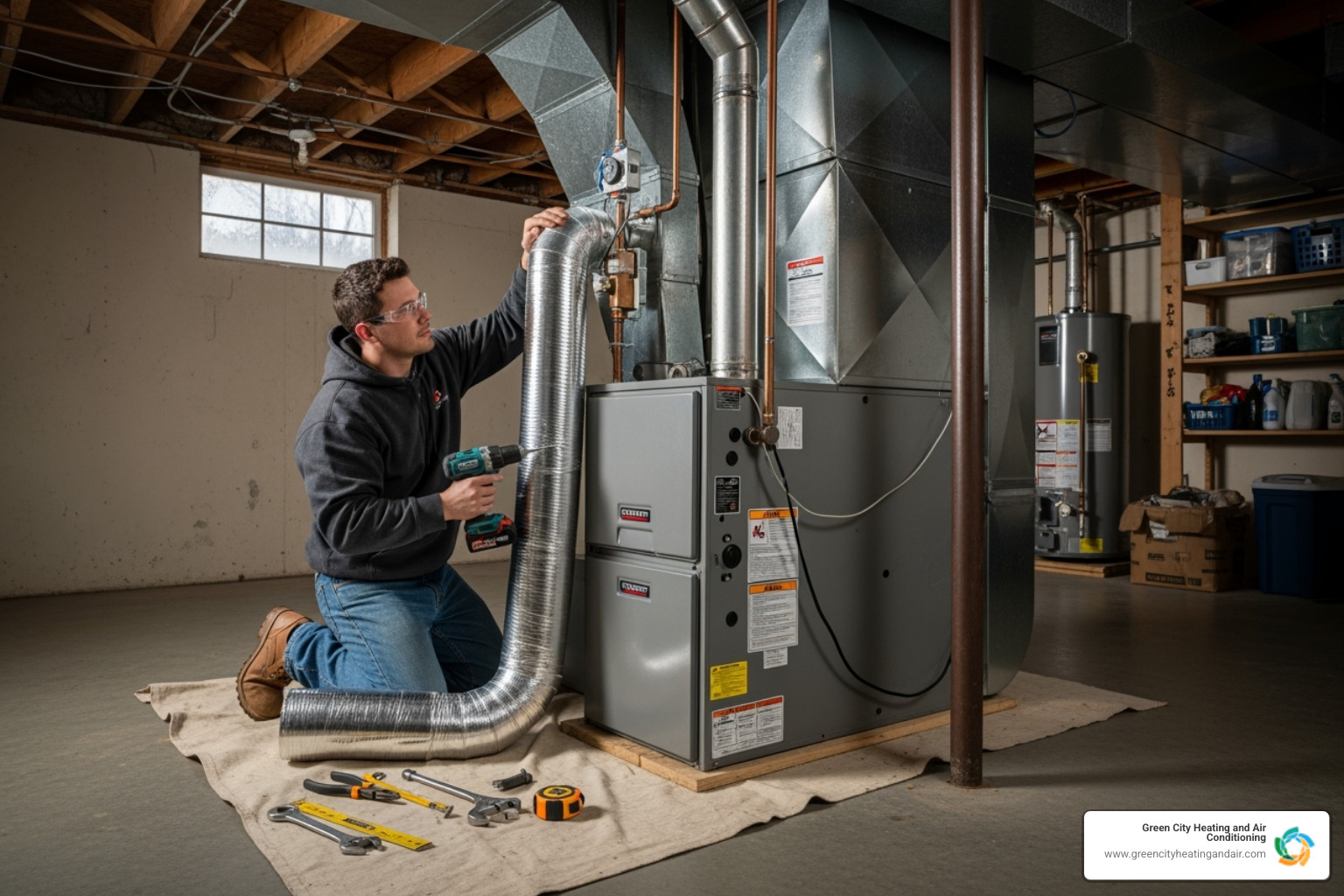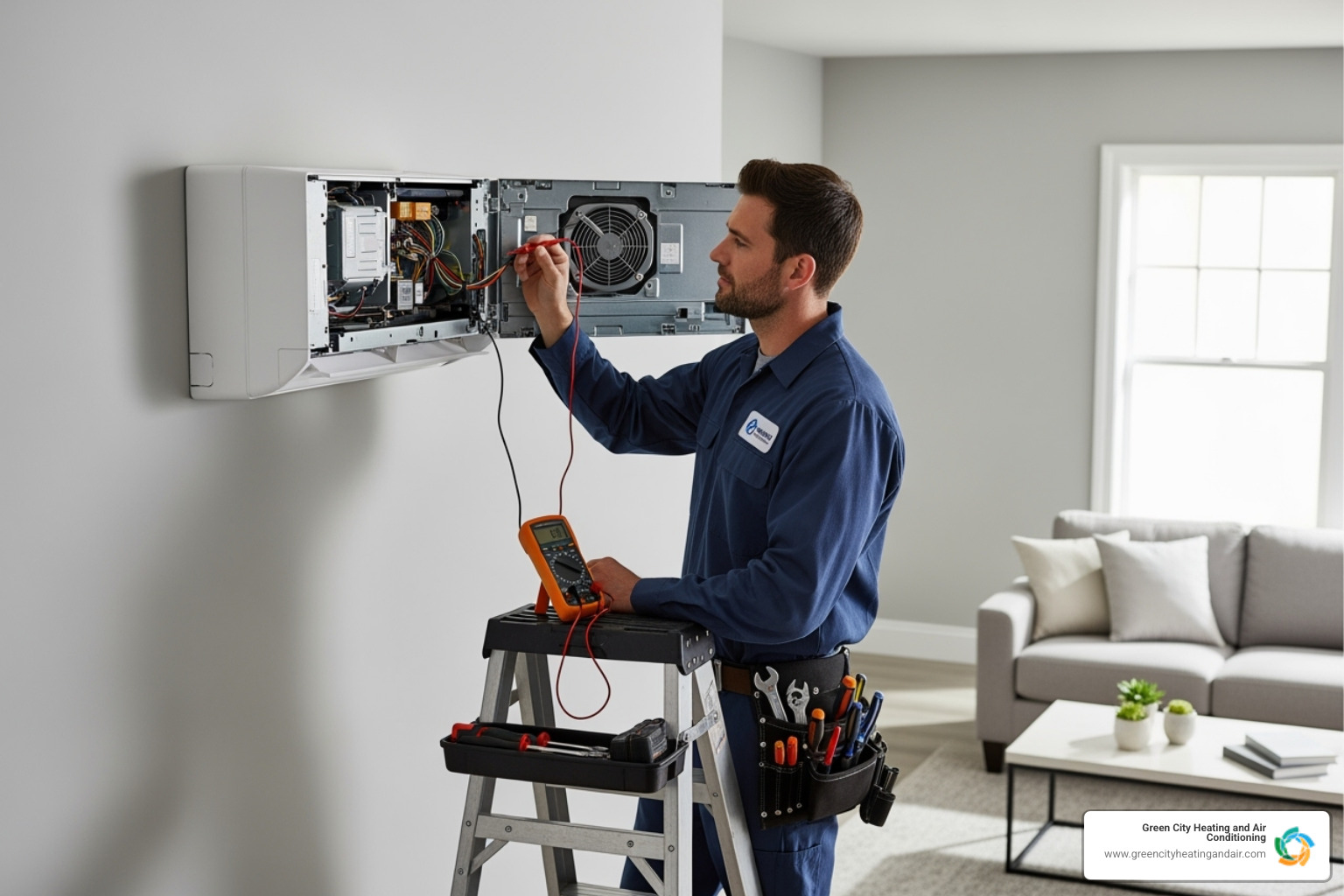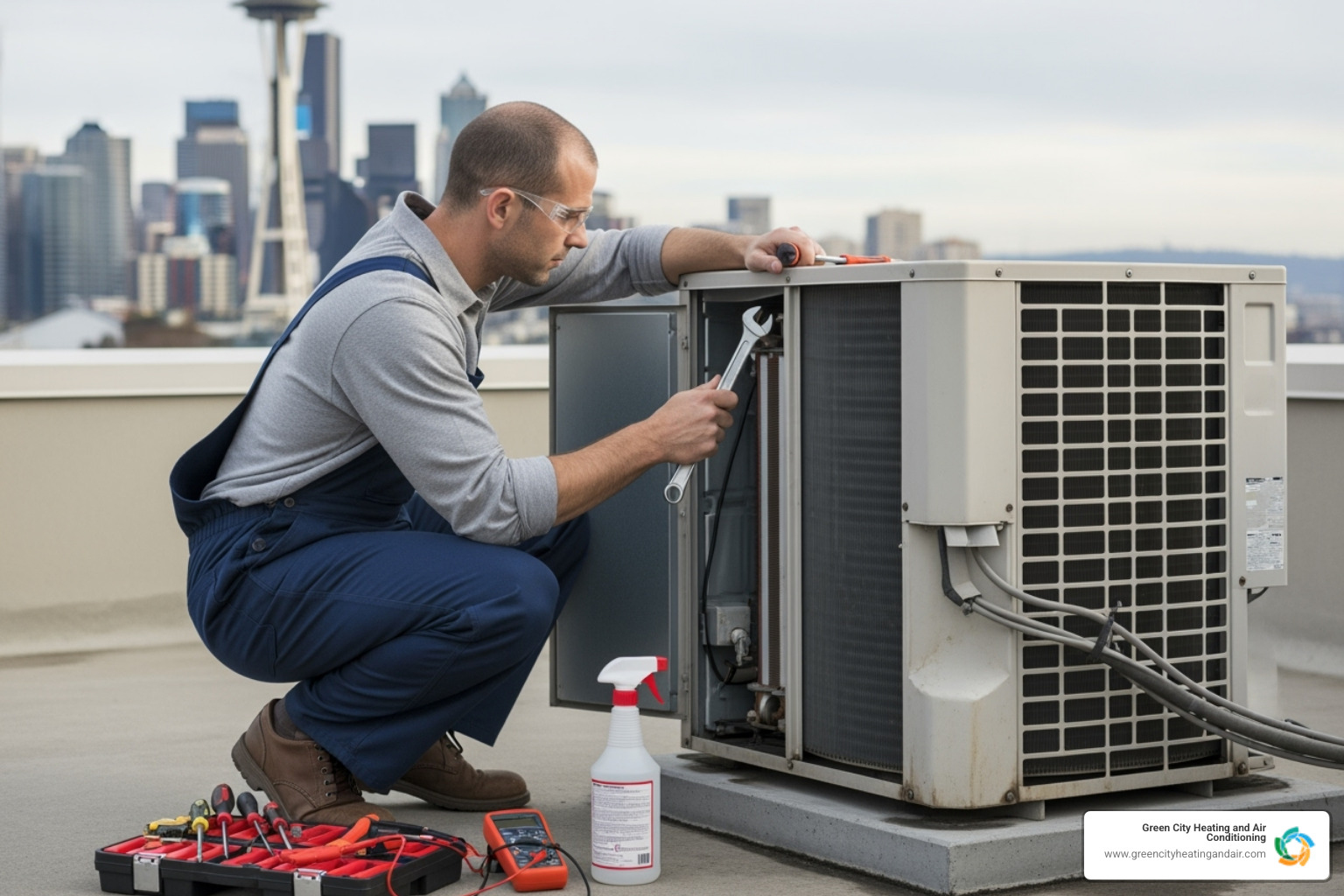If your boiler in Mercer Island is struggling to keep your home comfortable, there’s a chance you’re dealing with an airlock. This issue can stop parts of the system from circulating hot water properly, leaving you with cold radiators or inconsistent heating. It’s not just frustrating — it can also lead to more wear and tear on your system if not resolved quickly. Airlocks restrict water flow and cause uneven temperature distribution, which affects the overall performance of your boiler.
Homeowners often miss the early signs of airlocks until it disrupts daily routines. You might notice strange noises, slower warm-up times, or cold patches on your radiators. These symptoms may seem minor at first, but they won’t go away on their own. A timely response is necessary to prevent other issues down the line, like increased energy use or damage to the pump. Understanding how airlocks form and how to fix them can help you avoid a lot of stress and unexpected costs.
Overview Of Boiler Airlocks And Their Impact On Your Mercer Island Home
When water stops moving properly through a boiler system, it’s often because air has become trapped somewhere along the pipes. This is called an airlock. In a closed-loop system like a boiler, air doesn't belong, but it can get in during repairs, after water refills, or through small leaks. Once that air gets stuck, it blocks the flow of heated water. As a result, radiators may stop warming evenly, or the system may shut itself off to prevent overheating.
Common signs that point to a boiler airlock include:
- Radiators that heat up unevenly, staying cold at the top and hot at the bottom
- Gurgling or bubbling sounds coming from the pipes or boiler
- A noticeable drop in water pressure
- The boiler turns on but heating doesn’t follow
- Hot water taps remain cold or lukewarm despite the boiler being active
The issue becomes more noticeable in homes with multiple heating zones, such as upper and lower floors. You may find that parts of the home feel comfortable while others remain cold, making it harder to rely on your boiler for consistent warmth. These types of disruptions are especially inconvenient during colder months or in homes with vulnerable or elderly residents who require steady indoor heat.
Letting an airlock linger doesn’t just reduce comfort — it forces your boiler to work harder. Over time, that strain can impact system longevity and heating efficiency. It also affects how evenly energy is used throughout your home, sometimes spiking your energy bills even if you aren’t getting the warmth you expect. A quick and professional response can stop that cycle.
Understanding How Airlocks Form In Boiler Systems
Airlocks in boiler systems typically form when air infiltrates the plumbing during maintenance, after water pressure drops, or when sections of the system are drained and refilled. The air has nowhere to go, and once trapped in high points of the piping, it creates a blockage. Water can't pass through the air pocket, so flow is interrupted.
Air can enter your boiler system in a few common ways:
1. After a major repair or radiator swap where sections of the system were opened
2. During automatic refilling if small leaks result in air being drawn in with water
3. If the system was poorly bled after an installation or service
4. When corrosion develops and creates gas from chemical reactions within the closed loop
These air pockets tend to settle in higher parts of the system or within radiators located upstairs. Boiler systems that haven’t been maintained regularly are more likely to have small leaks or parts that allow trace amounts of air to enter over time. Even though it seems like a small issue, airlocks can cause noticeable drops in heating performance and make your system cycle more often.
The longer an airlock is present, the more it disrupts the boiler’s efficiency. You may find yourself raising the thermostat more frequently, increasing strain on your boiler without actually fixing the temperature concern. Heating becomes inconsistent, and your comfort takes a hit. Once the air is removed, water flows freely again, restoring even pressure and allowing heat to circulate properly. Recognizing the early signs and causes helps you act before the issue gets worse.
Steps Our Technicians Take to Resolve Boiler Airlocks
When a boiler in your Mercer Island home isn’t heating properly due to an airlock, a methodical approach is needed. The first step our technicians take is identifying where the air is trapped. They begin with a pressure check and system inspection to pinpoint signs of air in the pipework or radiators. This step is essential to make sure the issue is air-related and not linked to a valve, pump, or other mechanical fault.
Once the problem area is narrowed down, our technicians use one or more of the following solutions to release the air:
1. Bleeding the radiators – This is usually the starting point. If the top of a radiator is cold, it’s often a sign of trapped air. Using a radiator key, our technicians release the air to restore proper water flow.
2. Inspecting and opening manual air release valves – High points in the system, like near expansion tanks or pipe bends, are prone to air buildup. Our professionals carefully open these valves to allow the air to escape without affecting system pressure.
3. Repressurizing the boiler system – After removing the air, the system often needs rebalancing. Our technicians adjust the pressure using the boiler’s filling loop to return it to manufacturer-recommended levels.
4. Checking pumps and valves – Airlocks can impact water pumps. Our professionals confirm that the pump is functioning correctly and not pushing against trapped air.
5. Power flushing – In heavy buildup cases, flushing the entire system might be necessary to dislodge deeper blockages or loosen sediment trapping air within the system.
By using proper tools and proven methods, our technicians ensure that your heating system is cleared of air and works as it should. One Mercer Island homeowner experienced cold radiators in her upstairs bedrooms every summer. After a thorough assessment, our team found residual air locked into the upstairs loops from a previous repair. Once cleared, her system started heating evenly within the same day.
Trying to release air on your own might seem simple, but if not done in the right sequence, it can lead to further imbalance or loss in pressure. That’s why it’s safer to rely on trained professionals who know what to look for and how each part of your boiler contributes to the system’s function and safety.
Preventing Future Airlocks in Your Mercer Island Boiler
After resolving an airlock, ongoing maintenance plays a big role in keeping your boiler system running properly. Preventing trapped air requires attention to several routine checks that help limit the chance of recurring problems.
To avoid future airlocks, consider the following:
- Schedule yearly boiler servicing to catch early signs of leaks or failing components that may let air inside
- Regularly bleed your radiators before each heating season, even if everything seems to be working fine
- Inspect your pressure gauge once or twice a month. If pressure is regularly low, it may be drawing air into the system through refill valves or connections
- Look at areas around pump seals or pipe joints for moisture or corrosion. These spots may let in small amounts of air over time
- Ask that air separators or automatic air vents be checked during servicing. These parts release air without needing to bleed the system manually
- Keep a record of system repairs or plumbing work inside the home, as these events often introduce air if a technician forgets to repressurize or bleed the boiler properly
Homeowners in Mercer Island should treat these tasks as part of regular home care. Just like swapping HVAC filters or checking thermostat batteries, reviewing your boiler system now and then can help stop bigger problems. Most airlocks start from small oversights — ignoring low pressure, using poor-quality components, or skipping seasonal maintenance.
Taking care of your heating system is easier when it’s thought of as an ongoing responsibility instead of reacting only when something stops working. That mindset can greatly reduce your repair calls, energy waste, and comfort issues at home.
Keep Your Boiler Running Smoothly in Mercer Island
Boiler airlocks are frustrating because they often feel like invisible problems. Everything may seem to be running, but your space still feels cold. If your system isn’t delivering steady heat, the issue might be more than what’s visible from the outside. Without proper attention, something as minor as trapped air can alter how heat moves through your home. Over time, that creates demands on your boiler that wear it out faster and reduce its effectiveness.
Avoiding repeat problems means working with technicians who understand what signs to watch for, how air enters the system, and how to get things back to normal with as little disruption as possible. When they take on an airlock, they’re not just solving today’s issue — they’re helping prevent tomorrow’s failures too.
When your boiler shows signs of trouble in your Mercer Island home, a fast resolution helps save time, money, and your comfort. Whether it’s recognizing symptoms early or sticking to a solid maintenance plan, acting quickly keeps your heating efficient and reliable for the long run.
If you are experiencing persistent heating issues or suspect that trapped air is affecting your system's performance, scheduling regular maintenance can help prevent complications. Learn more about how boilers in Mercer Island can keep your home warm and comfortable throughout the colder months. Green City Heating and Air Conditioning is here to support your needs, so for a quick estimate or to book a service visit, please contact us today.
More Blogs
Latest
insights and tips

Warmth Unleashed: The Ultimate Seattle Furnace Installation Handbook

Emergency Ductless AC Repair in Bellevue: Get Your Cool Back Fast










